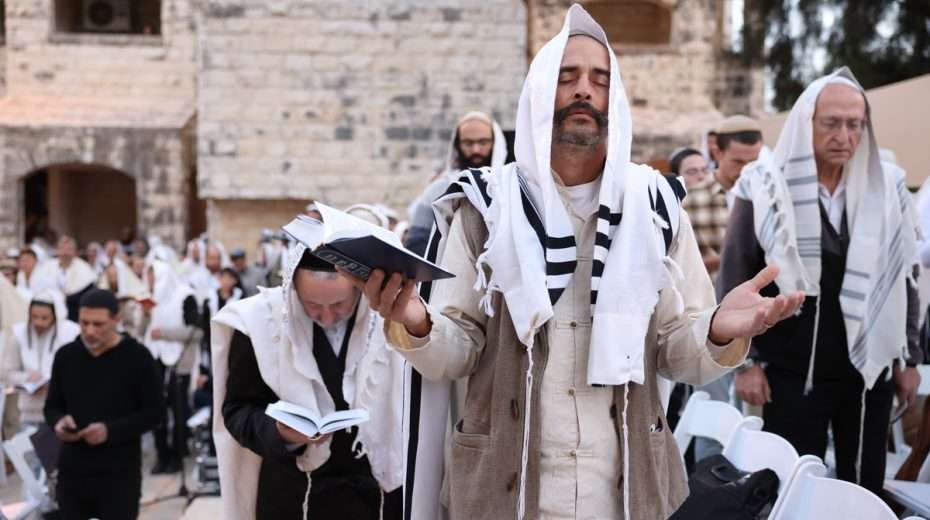Will Israel Become an Ultra-Orthodox Jewish State?
Israel’s Orthodox Jewish population is growing rapidly, and is far more cohesive and disciplined than “secular” society.

Religious and Orthodox Jews are today a political force to be reckoned with, and that has Israel's secular society unsettled.
One of the big concerns of the largely “secular” Israelis protesting week after week in Tel Aviv is that Israel will be transformed into a religious state based on Halacha (Jewish religious law), not unlike the way Iran is today governed by a particular brand of Islamic Sharia Law.
But legislation by one party or another is highly unlikely to bring about such a scenario under present circumstances.
The real “threat” (for those who see it as a threat) is to be found in the rapid growth rate of the ultra-Orthodox Jewish (Haredi) population in Israel.
Israel in general has an extremely high birthrate, far outstripping most Western industrialized nations. But even that pales in comparison to the birthrate and other growth factors in the ultra-Orthodox Jewish community.
To mark Israel’s 75th Independence Day, the Haredi Institute for Public Affairs conducted a study examining the growth of ultra-Orthodox society since the establishment of the state.
It is difficult to pin down the precise number of ultra-Orthodox Jews in the newborn State of Israel during its early years because surveys at the time did not segment the Jewish population.
Only at the end of the 1990s did researchers begin to identify the ultra-Orthodox population in surveys. This was based on personnel surveys by the Central Bureau of Statistics (CBS) conducted in 1979 – but estimates produced were too low and did not provide an accurate picture of the size of the ultra-Orthodox population in Israel.
In 2002, the CBS began to segment the Jewish population in its annual social survey, and in 2014 the distinction was added also to the manpower survey, which is broader than the social survey.
According to the available data, the ultra-Orthodox population in Israel in 1979 was approximately 212,000 (about 5.6% of the population).
From then until 2023, ultra-Orthodox society grew by an astounding 509% and currently stands at approximately 1,290,000 people (about 12.9% of the population).
For comparison, the rest of the population in Israel (non-Orthodox Jews and Arabs) grew in those years by 135%.
According to estimates, on Israel’s 90th Independence Day the ultra-Orthodox population will reach approximately 2,150,000 (about 18% of the total population), and on the 100th Independence Day in 2048 the number will reach an estimated 2,860,000 (about 21.2% of the total population) .
Aliyah from America
Estimates put the Jewish population in the United States at 7 million or more, at least 10% of whom are identified as ultra-Orthodox Jews.
Should America experience as significant increase in antisemitism, many ultra-Orthodox communities would be among the first to make Aliyah to Israel. That would mean a sudden influx of hundreds of thousands of ultra-Orthodox Jews, providing an enormous boost to the community here.
A different kind of voter base
Even without a large sudden influx of ultra-Orthodox immigrants from the US, the natural growth rate of the Haredi community is even more significant politically than it appears.
The ultra-Orthodox population is not like the rest of the “free-thinking” secular population when it comes to important matters like whom to vote for. Its positions and actions are governed by a hierarchy of leading rabbis who the ultra-Orthodox voters consult before casting their ballots. Which is one of the reasons you don’t see a large proliferation of ultra-Orthodox political parties. Political power is consolidated into one Ashkenazi faction (United Torah Judaism) and one Sephardi faction (Shas).
Secular and national religious society, meanwhile, continues to splinter into myriad competing political factions, thus splitting their vote many times over.
As a result, an ultra-Orthodox Jewish vote becomes far weightier than a secular Jewish vote.
And with the rapid growth rate of the ultra-Orthodox voter base, you can see where this is headed.
Ironically, it is secular society’s exaggerated focus on individual freedom and personal identity that is likely to facilitate the thing they fear most, a religious state governed by a far more cohesive and disciplined ultra-Orthodox community.
No comments:
Post a Comment